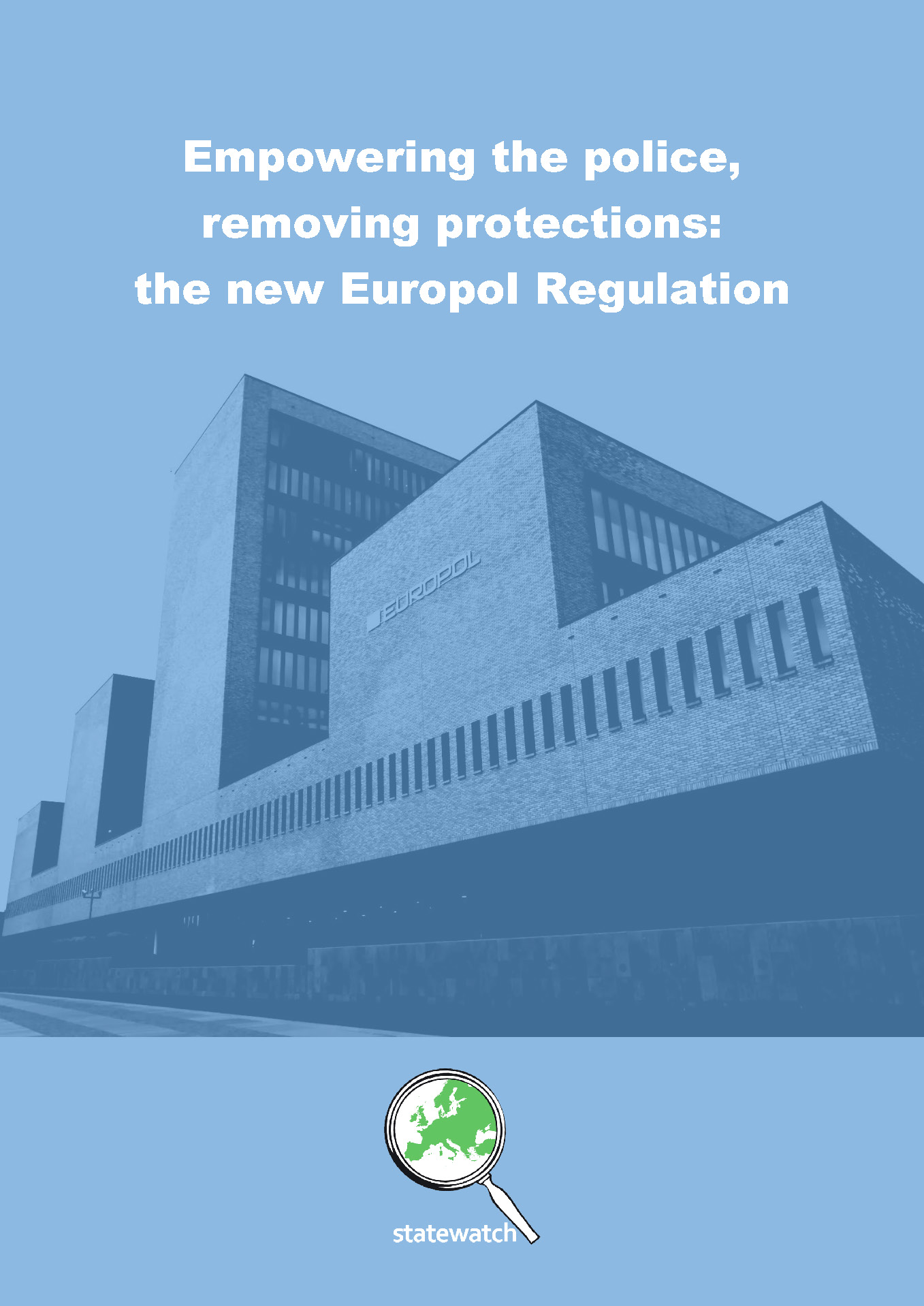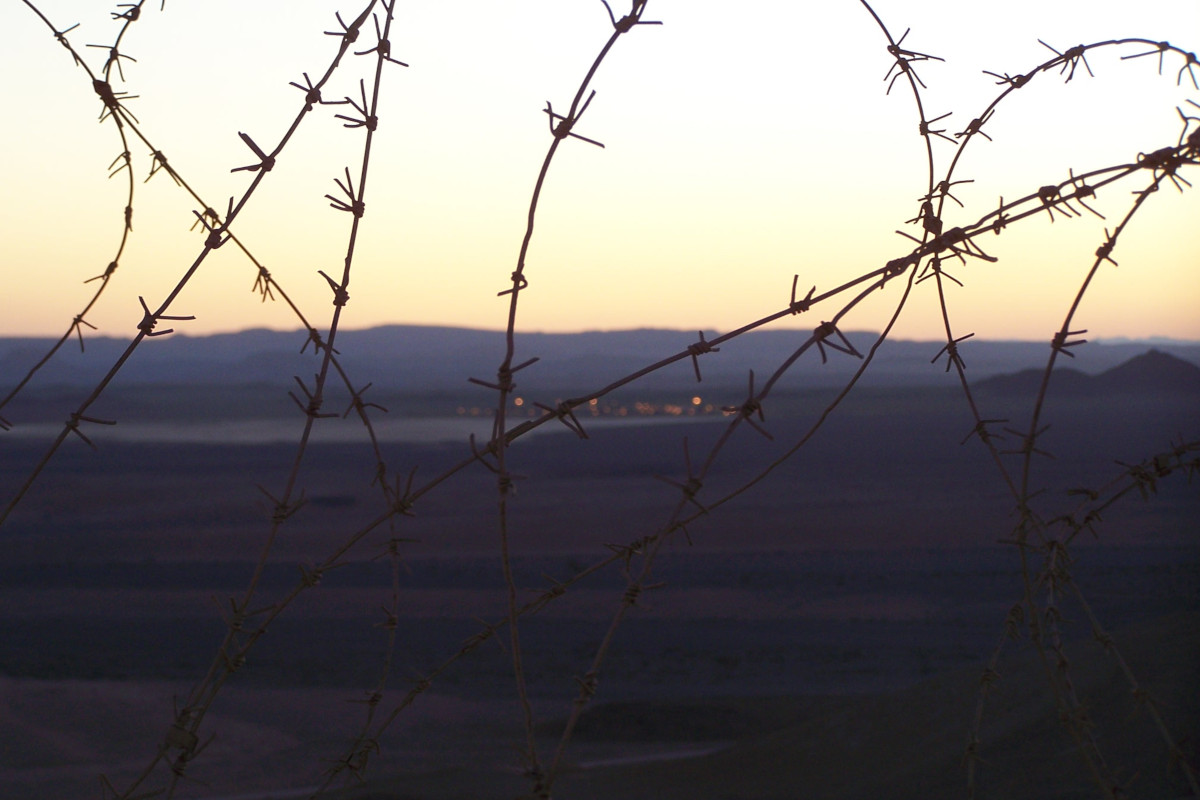Expansive new police powers hidden behind EU’s migrant smuggling proposals
Topic
Country/Region
12 December 2023
At the end of November, the European Commission announced two new laws to fight migrant smuggling. One seeks to make the legal framework more punitive. The other aims “to reinforce Europol’s role in the fight against migrant smuggling and trafficking in human beings,” but would in fact expand Europol’s powers in relation to all crimes for which it has competence, and let the agency conduct “non-coercive investigative measures” during joint operations with national police forces. Its staff are currently prohibited from conducting any kind of investigative measure.
Support our work: become a Friend of Statewatch from as little as £1/€1 per month.

Image: Jaanus Jagomägi, Unsplash
Chris Jones, Statewatch Director, comments:
“It is interesting that the Commission has chosen to use a proposal ostensibly about migrant smuggling to do some smuggling of its own – namely, by hiding extensive new powers for Europol behind panicked rhetoric about the undesirable methods people are forced to use to cross borders and seek safety.
Hiding behind the age-old claim of urgency, the EU’s executive has offered no justification for the necessity or proportionality of these new measures. Parliamentarians and civil society organisations should not be fooled by this unjustified, poorly-disguised effort to give Europol yet more powers, just 18 months after the last alteration to the agency’s legal basis.”
New tasks and powers
The proposal on Europol, which is paired with another aimed at toughening up the penalties for migrant smuggling, would give Europol’s European Migrant Smuggling Center a legal basis and new tasks, with the aim of increasing high-level coordination and cooperation between Europol, other EU agencies, member state authorities, and police forces in third countries. Both were launched at the Commission's "International Conference on a Global Alliance to Counter Migrant Smuggling."
The Europol proposal includes requirements for member states to “designate specialised services to counter migrant smuggling and trafficking in human beings,” provide appropriate training, and make sure that information is shared with Europol. The companion proposal would also introduce a requirement for member states to ensure that "special investigative tools, such as those which are used in countering organised crime or other serious crime cases," can be used in migrant smuggling investigations.
The press release also refers to “stronger Europol support through staff deployments,” while the proposal itself says “Europol’s support to the prevention and combatting of migrant smuggling and trafficking in human beings” will be reinforced “through operational task forces and Europol deployments for operational support.”
Beyond smuggling and trafficking
The casual reader may be forgiven for thinking that these new “task forces” and “deployments” would be tasked solely with fighting migrant smuggling and human trafficking – but in fact, if the proposals in their current form were converted into law, they would give Europol new powers in relation to all crimes for which it is competent. The reasons for this are not explained in the proposal, and there is no consideration of the potential impact.
“The proposal is not supported by an Impact Assessment considering that the Commission had little or no choice available, notably due to the urgent operational needs to improve Europol’s support to Member States on countering migrant smuggling,” says the document. Given the lack of an impact assessment, there is no detailed explanation of what these “urgent operational needs” are.
The proposal defines an “operational task force” as “a coordination mechanism set up by Member States among their competent authorities with the support of Europol to conduct joint, coordinated and prioritised criminal intelligence activities and investigations into a crime falling within the scope of Europol’s objectives that requires coordinated and concerted action.”
Meanwhile, “Europol deployments for operational support” are defined as “the deployment of Europol staff or seconded national experts in the territory of a Member State, upon request of that Member State, to provide analytical, operational, technical and forensic support in liaison and in agreement with the competent authorities of that Member State.”
These deployments are to take place for “complex and large-scale investigations,” to bolster “checks against relevant databases to strengthen controls at the Union’s external borders,” as part of “migration management support teams,” or during “major international events.” Some of these objectives coincide closely with those of the EU's migration plans, which will see a proliferation of detention sites at borders for the purposes of "screening" against databases and swift deportation.
Either task forces or deployments can be proposed by Europol’s Executive Director if they believe it would “add value to preventing or combating a crime falling within the scope of Europol’s objectives.”
“Non-coercive investigative measures”
The proposal would also give the EU’s police agency the power to apply “non-coercive investigative measures” during joint operations with national authorities.
The law governing Europol – which was amended just last year – currently says that although Europol staff can provide “forensic and technical support” whilst national authorities carry out investigative measures, the agency’s staff shall “not, themselves, have the power to execute investigative measures.”
That phrase would be removed from the law by the new proposal, and a new provision would be added:
“Europol staff shall have the power to execute non-coercive investigative measures themselves provided that Europol has been requested to do so by a Member State in accordance with its national law and the Executive Director has authorised Europol staff to execute the requested non-coercive investigative measures.”
These measures will “relate to data processing,” says the proposal, but it offers little further explanation.
Through the proposal, the Commission wants to grant the EU’s increasingly powerful police agency extensive new operational and investigative powers to deal with all forms of crime for which it is competent, and not simply migrant smuggling and human trafficking, as its PR material claims. What remains unknown is why the Commission was unable to admit its ambition openly.
Our work is only possible with your support.
Become a Friend of Statewatch from as little as £1/€1 per month.
Further reading

Empowering the police, removing protections: the new Europol Regulation
This report examines the new powers granted to EU policing agency Europol by legal amendments approved in June 2022. It finds that while the agency's tasks and powers have been hugely-expanded, in particular with regard to acquiring and processing data, independent data protection oversight of the agency has been substantially reduced.

EU planning new anti-migration deals with Egypt and Tunisia, unrepentant in support for Libya
The European Commission wants to agree “new anti-smuggling operational partnerships” with Tunisia and Egypt before the end of the year, despite longstanding reports of abuse against migrants and refugees in Egypt and recent racist violence endorsed by the Tunisian state. Material and financial support is already being stepped up to the two North African countries, along with support for Libya.

EU: More surveillance, funding and operational cooperation to fight migrant smuggling
A Spanish presidency note to member state representatives in the Council identifies cross-border organised crime as a key threat to the correct functioning of the Schengen area, calling for additional impetus in 2023-2024 to fight “cross-border, serious and organised crime”. Crimes involving smuggling and exploitation (including of children, trafficking, sexual exploitation) are deemed challenges for external border management and the Schengen area.
Spotted an error? If you've spotted a problem with this page, just click once to let us know.

